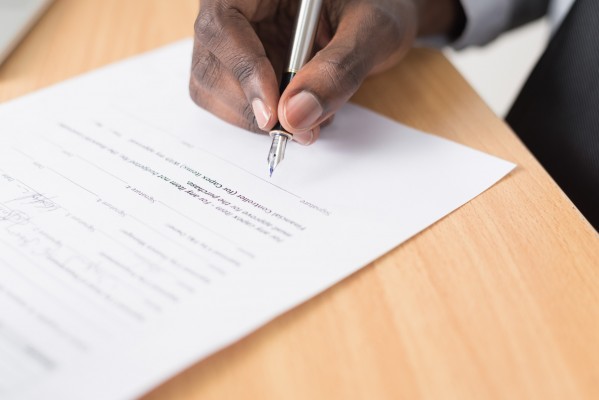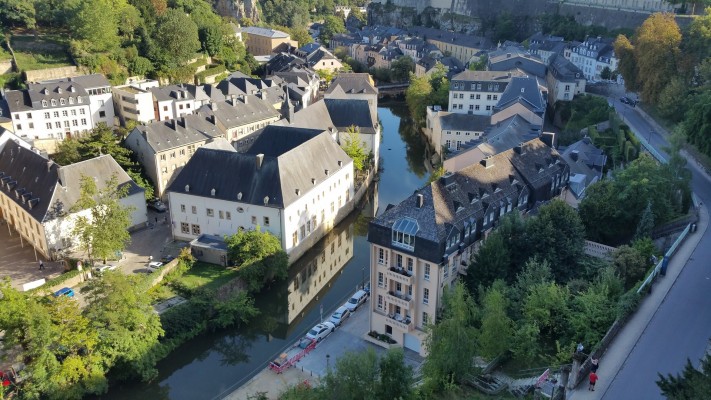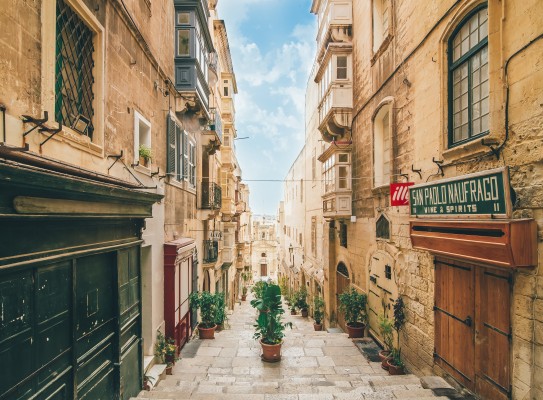Buying a property seems to be a dream of many individuals and couples as it allows you to escape the cycle of long-term rental and can even be a valuable investment for a lifetime.
The appeal of owning property in Switzerland goes beyond the beauty of the country and requires careful consideration of many important factors before buying a property for sale. In this article, we would be discussing a number of the things to consider before buying a property for sale in Switzerland.
Generally, renting a property in Switzerland may seem easier and more affordable in the short term but it is important to consider the long term effects and compare them to those of buying a property in Switzerland. When considering a long-term rental or a property for sale in Switzerland, you have to ensure that the property is affordable especially as there is a need to have some amount of cash to meet the financial requirement even if you intend to secure a mortgage. Also, there are many other administrative and maintenance costs to consider which may become quite significant in value.
Prices of properties for sale in Switzerland
The average prices of properties have continued to fall in 2019 which is in opposition the growth which was experienced in the country between years 2000 and 2016. The trend observed in properties which are owner-occupied revealed a price rise of 80.5% between 2000 and 2016. Also, a similar increase was seen in single family homes of 58% while rental apartments in Switzerland had an increase of 49.2% in those years. However, in 2018, prices of properties in Geneva showed a decline of 1.44% while those in Zurich reduced by 0.84%. Properties in Central Switzerland seemed to have taken the biggest hit as there was a significant fall of 3.17% in 2018. Other parts of Switzerland also experienced notable price drops in 2018, however, Berne seemed to have an increase of about 1.8% that year. Further, there was a reduction of about 1.44% in the prices of private apartments observed in the first quarter of 2019.
With all these drops in prices of houses in Switzerland, the average cost of owner-occupied apartments in Zurich during the first quarter of 2019 was CHF 12,820 (€11,500) per square meter. A similar asking price was demanded in Geneva at about CHF 12,810 per square meter. In other parts of Switzerland such as Lausanne, Basel and Berne, the average prices were CHF 9,900, CHF 8,680 and CHF 7,270 respectively. These price differences were also reflected in single-family homes as the prices of properties in Zurich were going for about CHF 1.8 million, Geneva was at about CHF 1.67 million while Lausanne, Basel and Berne were priced at CHF 1.39 million, CHF 1.35 million and CHF 1.2 million respectively.
Following the real estate market in Switzerland, after 2016, there has been a significant decrease in such property prices especially as the Swiss National Bank has begun to employ strict lending regulations so as to reduce the housing debt entered in the country. Additionally, as the value of the Swiss frank has risen above the Euro, the prices of real estate in Switzerland have become more expensive to foreign buyers and investors. This has also led to a reduction in the demand for Swiss properties by international buyers.
Types of purchasing agreement for a property for sale in Switzerland
In the real estate industry there are different purchasing agreements available on the properties for sale. Some of such agreements applicable in Switzerland include freehold and leasehold agreements both of which have different conditions and limitations.
Freehold refers to a type of agreement in which the property is purchased outright and the property owner is also the land owner. This gives the property owner full rights to the land and allows them to choose to either build on it, lease it out or even sell it.
A leasehold agreement is one of the more common types of property purchases in Switzerland especially as there is a limited amount of land available for building. As the name implies, a leasehold refers to an agreement where the owner of the land leases or rents out their land allowing the user to build a property or buy an already built property on that land. The underlying concept is that the user pays a regular fee to the landowner giving them the right to use the land for a specific period of time. Basically, the user owns the house or building but does not own the land on which the building rests.
In most cases, the ground lease is usually between 30 to 100 years and after the agreed period, the lease would be renegotiated. It is possible for the homeowner to sell their home to anyone interested in buying a property for sale in Switzerland, however, this action of selling the home essentially transfers the land lease to the new property owner. This means that the new property owner would have to fulfil the conditions already set in the land lease between the seller and the land owner. The same logic applies if the property was transferred as a gift or under inheritance. After the land lease period, the new owner can then enter into a new agreement with the land owner subject to different terms and conditions.
There are several benefits to buying a home as a leasehold including the relatively cheaper price of the property for sale in Switzerland when compared to those on freehold. This is because a freehold property comes with a transfer of the full rights and title deed on the land while the leasehold is simply a sale of a building with a rental payment made for the land. In many parts of Switzerland, it is easier to obtain leasehold properties as a lot of the land available for property development is purchased by large organizations with a plan to obtain value through a long-term rental of such lands.
On the other hand, leaseholds may not be ideal as there is a sense of lack of ownership and control since the land belongs to someone else. Further, it is possible for the land owner to increase the lease charges when the value of the property increases. It is also possible for the landowner to refuse to renew the lease after the period ends, this increases the risk of such leasehold properties and should be factored into the initial consideration criteria before buying any property for sale in Switzerland.
It is very important for property buyers to ensure that they choose the type of property purchase agreement that suits them and that their risk level fits the property for sale in Switzerland.
Types of property ownership
In Switzerland, it is possible to buy properties for sale as a single individual or jointly with other partners. This choice is to be recorded in the land register reflecting the rights of each party. Some of the possible ownership structures include:
Sole ownership which is where a single individual chooses to buy a property with their own funds and are responsible for all the taxes, interests, maintenance charges and any damages to the property. The owner can sell or dispose of the property freely.
In a joint ownership, there is more than one owner of the property which can be based on civil status or contract such as a marriage or registered partnership agreement, or by law usually in cases of a community of heirs. In such cases they are joint owners regardless of the financial investment made by either party as the ownership is on the foundation of their relationship which helps to determine the rights of each party generally considered to be equal. The property can only be disposed of by agreement between all parties.
Co-ownership is one where individuals come together to invest in a property and their rights are generally based on their financial contribution. The shares of each party are recorded in the land register, each co-owner has similar duties and can freely dispose of their share of the property. However, decisions are made by the majority while the shares to be disposed have to be offered to the other owners first. There is a form of co-ownership called condominium which is regulated by law and may require further investigation.
These types of ownership should be considered when choosing to buy a property for sale in Switzerland as the rights and responsibilities vary for each type of ownership.
Restrictions on properties purchased by foreigners
The laws applicable to real estate in Switzerland are very strict and a number of them are relevant to foreign property buyers. The main law is the Lex Koller (the Swiss Federal Act on Acquisition of Real Estate by Persons Abroad) which outlines the requirements for any property purchase made by non-Swiss buyers. The laws guiding properties for sale in Switzerland differentiate buyers based on their nationality and the permits that they possess in the country.
Foreign property buyers need to know that:
1. Buyers who live abroad (outside Switzerland) are only allowed to buy commercial properties in Switzerland. Such commercial real estate include hotels located in ski resorts in cantons such as Bern, Graubünden, Obwalden, Uri, Vaud & Valais. Foreign buyers need to be aware of the strict rules guiding the resorts and properties for sale in each of the cantons.
2. Citizens of other countries which are members of the European Union (EU) or European Free Trade Association (EFTA) who live in Switzerland and possess a residence permit B or a permanent residency (permit C) are allowed to buy property freely without any additional permit as they have the same rights as Swiss citizens.
3. Other Non-Swiss citizens living in the country, who are also not citizens of other EU/EFTA member countries, are then categorised as follows:
-
Those who have a residence permit C are allowed to purchase real estate without any other permit as they have similar rights as Swiss citizens.
-
Those with a residence permit B are only allowed to buy a property to use a their main residence under the conditions that they plan to live in that property as their primary residence or in the case of an undeveloped land, that they would build their main residence on that land within a one year period.
For Non-Swiss/EU/EFTA citizens with a residence permit B, who intend to buy a property which would not be their main residence, such as a holiday home, or a unit of an apparthotel or a second home, a specific permit would be required.
Basically, for an EU/EFTA citizen living in Switzerland either on a residence permit B or C, there are no restrictions for buying real estate, and the same benefits are given to non-Swiss/EU/EFTA citizens who live in Switzerland on a residence permit C as they are treated as Swiss citizens. On the other hand, non-Swiss/EU/ETFA citizens who possess a permit B to live in Switzerland are only allowed to buy a main residential property or build their primary residence within a year in Switzerland. Any additional property purchase would be subject to the laws of each Canton and the permits to be obtained.
Purchasing costs and sources of finance
Financing the purchase of properties is a major part of the process of buying any property. Buying a property requires a lot of money and many individuals are unable to pay for such properties directly from their private funds or savings. As such, there are a lot of requests for mortgage loans from banks which require the individual to pay back the loan over a long period of time with interest. Such mortgages are usually secured using the property as a collateral.
Considering the interest rates of mortgages in Switzerland is very important as in March 2019, the average interest rates on mortgage loans were relatively low. The variable interest rate was about 2.63% which is only 0.01% higher than the rate in 2018. Further, the interest rate on mortgage loans fixed for up to 1 year and 3 years maturities were about 1.07%, while those fixed for up to 5 years, 7 years and 10 years were at 1.11%, 1.2% and 1.41% respectively.
Generally, it is expected that Swiss borrowers would have to make a down payment of between 5% and 20% (preferably 20%) of the value of the loan before a mortgage can be granted. Such capital contribution can be obtained from sources including personal savings, securities, gifts or inheritance as well as loans from friends and family. Even with this 20% down payment and an initial mortgage, property buyers in Switzerland usually have to take out a second mortgage as the basic mortgage only covers about 65% of the price of the property for sale. The second mortgage for the outstanding 15% of the price of the property for sale in Switzerland is usually offered for a fixed period of time and at a higher interest rate.
The mortgage is usually given to individuals depending on their credit score and it is based on either the price of the property for sale in Switzerland or the value of the property according to the appraisal done by the bank or lender. This mortgage amount is calculated by considering the lower value placed on the property even if the price of the property for sale in Switzerland is higher than the appraisal value, the mortgage would be granted based on the lower value given by the lender. To obtain such mortgage loans from any Swiss bank, the individual has to either be a Swiss citizen or must live in Switzerland under either a residence permit B or C depending on their nationality, as EU/EFTA citizens only need a permit B while non-EU/EFTA citizens should have a residence permit C.
Apart from the cost of obtaining a mortgage or the outright purchase of a property for sale in Switzerland, there are other associated purchasing costs which every home buyer needs to consider. These costs include purchase taxes, land registry charges and even notary fees. These purchasing costs seem to be relatively low in Switzerland as studies show that it is generally between 3% and 3.8% of the cost of the property for sale. This rate is only higher than those charged in a few other European countries including Latvia, Norway, Estonia, Denmark as well as Iceland. Even though this rate is low, it is important to make provision for these and other miscellaneous costs that may arise.
Further, banks and lenders expect that the borrower earns a monthly income which should be no less than three times the repayment amount. The comparison is based on a higher interest rate of about 5% along with charges for insurance and maintenance meaning that the real estate buyer would have to have a much higher monthly income. The mortgage should be obtained from banks and some of the cantons have specific banks while some other banks are national and can provide mortgages regardless of the location of any such property for sale in Switzerland.
Buying a property in Switzerland
After considering all the intricacies of the real estate market in Switzerland and deciding to buy a property for sale in Switzerland, there are some necessary steps to take. These steps begin with finding properties for sale in Switzerland to choosing the most appropriate one and eventually actually buying the desired property. This process can take about three months or more depending on how each step is handled.
To get the best chance of finding properties for sale in Switzerland, buyers typically start their search from various online platforms. Many real estate agents and other property sellers now list their properties for sale in Switzerland on their real estate website and/or on other online listing portals. It is also possible to find some properties being listed in newspapers or in specialized real estate papers and magazines.
It is important to know that the real estate market in Switzerland is very competitive and that the properties for sale which are listed tend to be sold rather quickly. As such, property buyers need to work with local agents who have insights into the market and also pay attention to listings when they come up.
When a suitable property for sale has been identified to fit the buyer’s specification and the property is in an ideal location after considering the applicable laws, fees and tax charges, then the property buyer may want to get a more detailed view of the house. Getting a surveyor to inspect the property for sale in Switzerland and give information on any major issues may be essential especially when buying an older property as the sellers are not obligated to provide details on the major problems with any property for sale in Switzerland. However, this action may be perceived as a lack of trust or seen as a challenge to the quality of work put in by the builders making requesting a survey on properties for sale in Switzerland rather uncommon.
After identifying the ideal property for sale in Switzerland, the funds to buy the property need to be secured. This can be paid outright from the private funds of the property buyer or the buyer can choose to obtain a mortgage loan from lenders or banks to help finance the purchase of a property for sale in Switzerland.
When the finances are sorted, an offer needs to be made on the property for sale in Switzerland which would depend largely on the amount of money available. The bid has to be communicated to the seller, this can be done directly or through a real estate agent. After the seller has considered the offer and it is accepted, then a deposit may be required to secure the property for sale in Switzerland. The property will then be held in escrow by a notary after which a legal agreement needs to be provided stating the conditions under which the property has been secured along with the terms for a refund or forfeiture of the deposit. At this point, the buyer would need to inform the mortgage provider that the bid has been accepted and the process to secure the mortgage would need to be completed.
Once this is done, the notary can then conclude the sale. This includes preparing the contract and ensuring that it is signed by all the relevant parties (the buyer, seller and the notary), holding the funds provided by the buyer in escrow then concluding the process of officially transferring the property for sale in Switzerland. Further, the notary would need to register a change of ownership as this ensures that the buyer now owns the property while confirming that all the required steps have been completed and all legal documents are provided. There are some cantons in Switzerland where such notaries can be gotten through their private practise allowing the buyers and sellers to choose any notary they prefer, while other cantons have specified official notaries dedicated to providing such services as certifying contacts on properties for sale in Switzerland. Some of such notaries may be found in the registered office such as at the prefecture office, the commercial registry office or even the bankruptcy office depending on the location of the property for sale. The notary charges a fee of about 5% of the price of the property for sale, this fee includes a property transfer tax of up to 3.3% (depending on the canton where the property for sale is located) while the outstanding amount would be taken by the notary for the services provided. Other fees of about 1.5% would be charged for registering the deed with the land registry office and this can be shared between the seller and the buyer.
Taxes on properties for sale in Switzerland
In addition to the cost of the property for sale in Switzerland, there are several taxes levied on homeowners in the country. These taxes are due to the different levels of government in Switzerland such as the Commune, the Canton and the Federal Government. Typically, these taxes amount to about 0.6% of the property purchase price annually. Homeowners is Switzerland are required to declare their properties on their tax returns and as such, they are expected to pay the applicable taxes, some of which are listed below. It is important to note that the taxes charged by the commune vary depending on the location of the property while those charged at a federal and cantonal level may be fairly similar.
-
Income tax: Although the name implies that there in an income earned on the property, however this tax is levied on the notion that the property can be used to obtain rental income. Consequently, property owners in Switzerland are expected to pay an income tax which is calculated at the value of the income that could be obtained from the property if it were put up for rent considering the state of the local property market. Such homeowners are however allowed to fully deduct any interest expenses incurred on the mortgage loans, if applicable. Additionally, it is possible to partially deduct maintenance expenses incurred on the property as well.
-
Real estate tax is charged by several cantons on the properties in that region and as such, the rate of such tax varies with each canton. This tax is also sometimes referred to as land or property tax and is levied on the tax value of properties. For example, cantons such as Bern and Valais charge about 0.015% while Graubünden charges a rate of 0.020% and Vaud is about 0.010%.
-
Property transfer tax: As the name suggests, this tax is levied at the point where a property for sale in Switzerland is bought and transferred to a new owner.
-
Wealth tax is charged by the different cantons in Switzerland and this is based on the assets owned by individuals in Switzerland. Such assets include apartments, houses or even land which are charged a wealth tax at a value determined using the assessment criteria set by each canton. Generally, the assessed value is lower than the original purchase price of the property. It is also possible to deduct mortgages, loans and other debt even of they are not incurred on the property being taxed.
-
Capital gains tax is the tax levied on any gains obtained from the sale of a property including houses and apartments. It is levied at a cantonal level based on the initial purchase price of the property and the sales price after deducting the cost of improvements and renovations made to the property. This gains tax may also be calculated based on the length of time that the property was owned as well as the profit gained from the sale of such property.
-
Inheritance tax is not levied on properties gifted to spouses and only 4 cantons charge this tax when the property is inherited by a direct descendant. These 4 cantons are Vaud charging 3.5%, Neuchatel at 3%, Luzern at 2% and Appenzell Innerhoden at 1%. If the property is gifted to or inherited by a third party, then it is subject to an inheritance tax at a rate between 15% and 55% depending on the canton.
In all, property buyers need to consider all the applicable taxes when buying properties for sale in Switzerland. Additionally, several countries have double tax treaties and agreements with Switzerland so that reduces the chances of paying taxes on the same property twice.
When choosing to buy a property for sale in Switzerland, a clear and deep understanding of the regulations and many legal aspects is required. It is recommended that property buyers engage the services of experienced real estate agents in Switzerland to help make the buying process easier.









